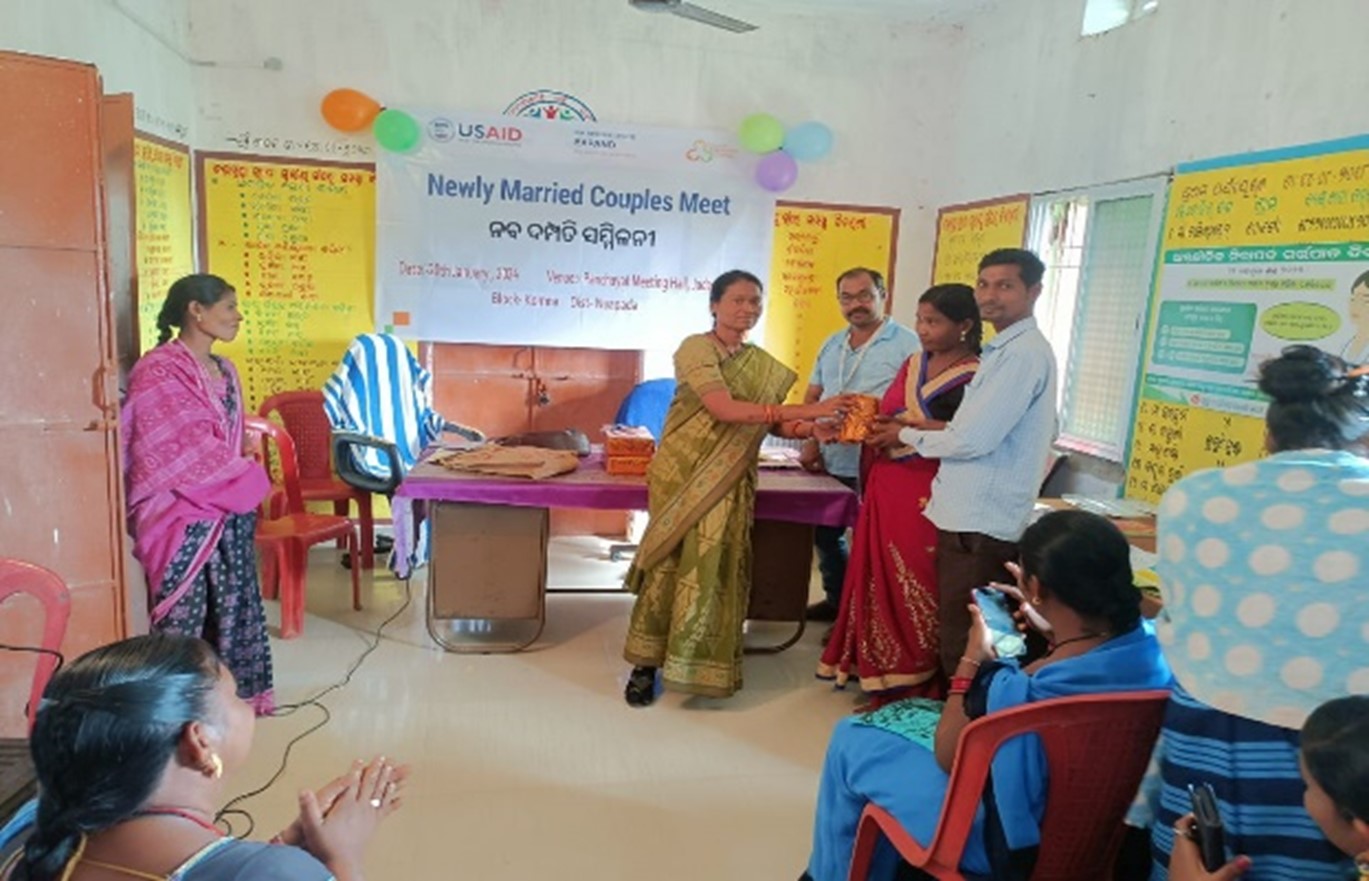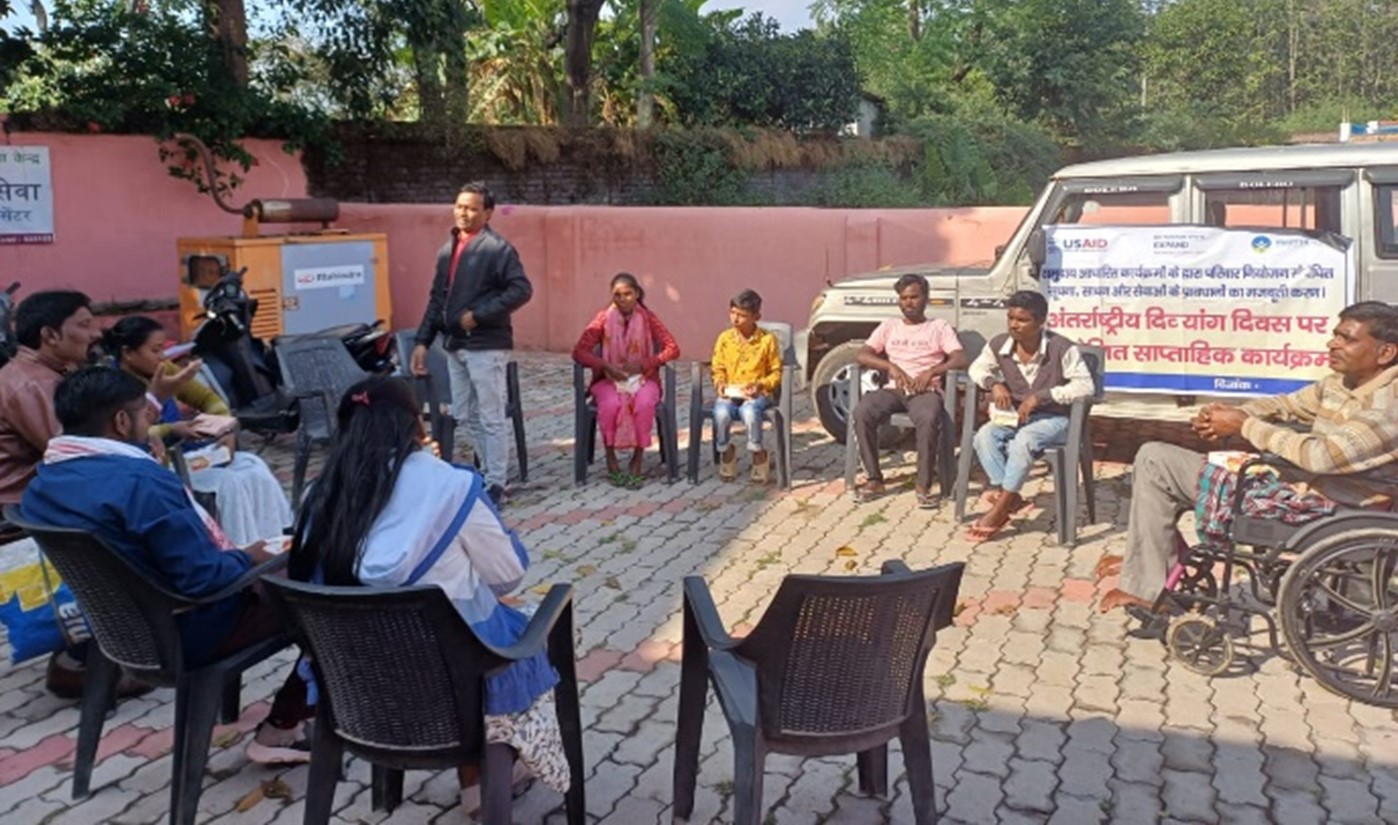Success Story
Advancing Equity: Strategies for Social Inclusion and Accessible Family Planning Services in India
July 25, 2024
USAID’s NPI EXPAND initiative has made significant strides in enhancing social inclusion within family planning (FP) services in India. The initiative’s main goal was to support local organizations MAMTA and C3 to strengthen state government efforts by improving the capabilities of healthcare providers such as Auxiliary Social Health Activists, auxiliary nurse midwife, male health workers, community health officers to deliver quality family planning messages and services. A particular strategic focus was put on reaching underserved groups including people with disabilities, the visually impaired, youth, newly married couples, and socially marginalized communities such as the Schedule Caste and Schedule Tribe. Some strategies and actions implemented to make this program success in the select geographies of India.
Capacity Building: On-site mentoring and training of healthcare providers enhanced their skills in delivering FP services. This included incorporating gender and disability inclusion strategies to better address the needs of marginalized groups.
“It was good learning during the training. Especially understanding disability and inclusion through power walk. The games were engaging. The session on couple counselling was interesting. Family planning is not only about sterilization. I got to understand about importance of targeting the Newly married and low parity couples and young men in our interventions. I am thankful to the Mamta team”. Ms. Batiya Devi, Block Trainers Team (BTT, Health), Ratu, Ranchi.
Focus on Marginalized Groups: Special efforts were made to increase FP service uptake among marginalized populations. This involved developing communication materials, conducting trainings and training of trainers, and implementing strategies tailored to people with disabilities, couples with disabilities, and other underserved communities. Training traditional healers in FP was another strategy to reach such groups as these traditional providers are often preferred as the first line of care due to common belief and easy access for some marginalized groups.
“Knowledge of various contraceptive methods and their availability was low before the training and sensitization program. We are happy that information on FP services is reaching us, and we have started using different FP methods based on our choice” – A couple with Disabilities
 Enabling Environment: The project emphasized gender equity, social inclusion, and disability inclusion through various activities such as consultations, capacity building programs for youth leaders, sensitization workshops, campaigns for men and boys, and the creation of informational and awareness materials. These efforts aimed to create a supportive environment for inclusive FP services.
Enabling Environment: The project emphasized gender equity, social inclusion, and disability inclusion through various activities such as consultations, capacity building programs for youth leaders, sensitization workshops, campaigns for men and boys, and the creation of informational and awareness materials. These efforts aimed to create a supportive environment for inclusive FP services.
“For the first time in 35 years of his traditional herbal medicinal practice, I got the opportunity to learn about various modern contraceptive methods. I have been providing herbal remedies to delay or prevent pregnancies. But with the knowledge gained from the training program by C3, it has raising awareness of modern contraceptive methods including healthy timing and spacing among newly married and young couples.” Traditional Healer, Mr. Kokila Naik
Community Engagement: Sensitization meetings with local government bodies called the Panchayati Raj Institution leaders, community leaders, faith leaders, traditional healers, and influencers promoted the understanding and support for inclusive FP services. Special mentoring drives helped Auxiliary Social Health Activists provide tailored support to people with disabilities through home visits, which improved service delivery and support.
“I got married some days after the training program, and all the learnings from the training program was very useful in making joint decisions in family planning, with equal participation from his partner. I am actively disseminating information on family planning methods among my peer groups. I will keep sharing information related to family planning on his personal YouTube channel, which has 48k followers already. Youth Leader, Tikeswar Hans

Intersectoral Coordination, Sustainability, and Scalability: The initiative focused on building long-term sustainability by holding consultations at various levels with key stakeholders. Most times, different departments work in silos and aren’t interconnected for the same objectives they are working towards. Emphasis was given to bring different departments to come together to speak to each other and enable an environment where there is cross collaboration and opportunities to leverage strengths and learn from each other. Women Self Health Group leaders, Women and Child Development representatives, State Rural Livelihood Mission, and Panchayati Raj Institution leaders were engaged to build a collective understanding on the importance of gender, social, and disability inclusion in FP at all levels of government and within the community. Partnerships between the grantees, MAMTA and C3, with other non-governmental organization functionaries and their trainings ensured the continuation of inclusive practices and knowledge sharing about modern contraceptive methods and FP services.
The grantees in India achieved significant milestones by developing Braille communication materials called “Baat Karne se banegi Baat” (Translates: Only talking about the issue will help resolve the problem) for FP and sexual reproductive health, which were recognized by the health department representatives, thereby enhancing accessibility for visually impaired individuals. A comprehensive training and mentoring program addressed the needs of people with disabilities and improved inclusive service delivery for couples with disabilities and other socially marginalized communities.
“In many tribal communities, formal weddings are often unaffordable, leading some couples to choose informal living arrangements known as Dhukku. While living together, the woman may not have the same rights as a wife in her partner’s family, and some couples may eventually marry formally if the man’s family bears the expense, while others remain in a live-in relationship with social acceptance. Couples who elope might face fines or community rejection. Sumitra, an 18-year-old from Kolsimri village, is in a live-in relationship with Panchu Minz. After becoming pregnant, she visited a private clinic but suffered a miscarriage shortly after. The Auxiliary Social Health Activist visited Sumitra to provide counselling. They advised her to delay pregnancy until her health improved, planning her life, and exploring contraceptive options. They also recommended pre-conception care and ongoing support for other young women in similar situations, ensuring better family planning and health outcomes.”
Outreach programs and inclusive campaigns effectively increased awareness and acceptance of FP among disabled communities, and youth, especially young boys and men leading to higher service uptake. Tremendous impact could be seen through engaging social media influencers such as the young boys and men through awareness drives at local Haat Bazar (local markets). Master trainers were trained who subsequently educated Auxiliary Social Health Activist facilitators and Auxiliary Social Health Activists on social inclusion and disability services, ensuring sustainability. The grantees developed accessible communication materials and received government recognition for these efforts, which empowered disabled individuals with better information on FP. Inclusive community mobilization involving a diverse range of stakeholders fostered broader support for FP services and created a more supportive environment for people with disabilities.
Overall, the NPI EXPAND India initiative has successfully worked to make FP services more inclusive and accessible by addressing policy gaps, building capacity, and engaging communities. Local partners MAMTA and C3 were successful in identifying and supporting local champions who were critical to reach different audiences. This has led to improved support and care for people with disabilities, ensuring they receive the necessary information and services to make informed reproductive health choices. These successful efforts have not only enhanced service delivery but also built a more supportive community environment, leading to lasting and impactful outcomes.